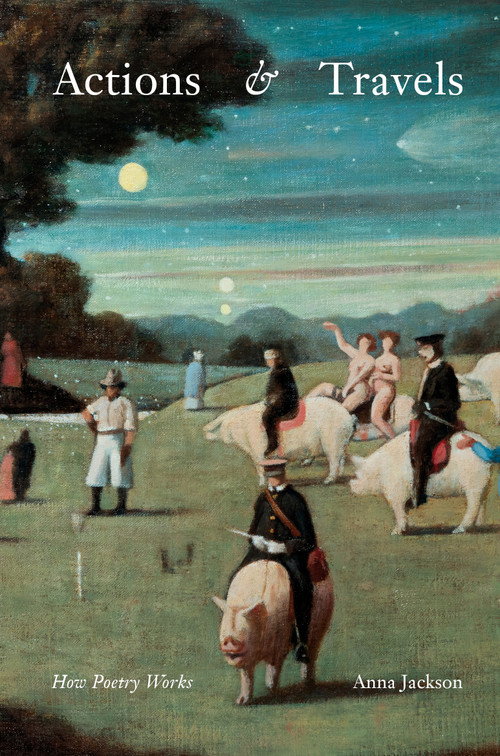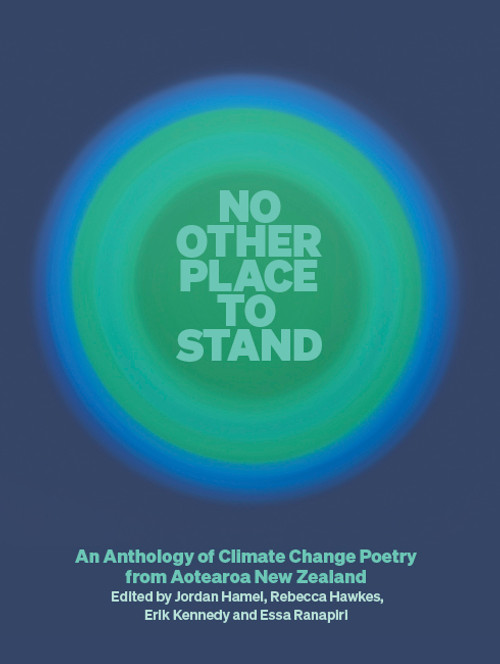
Te Whāriki: Reading Ten New Poets from Aotearoa
Anna Jackson, Dougal McNeill and Robert Sullivan, editors
Chris Tse to Tayi Tibble – what New Zealand poetry looks like now.
In journals and pubs, on TikTok and the bestseller lists, the current generation of New Zealand poets is finding new voices, new platforms and new readers. It is a poetry of now: of emojis and hashtags, of bodies and flesh, of identity and aspiration.
How to take the measure of this new rush of poetic energy, invention and disruption? What new aesthetics emerge alongside these new voices? How might old forms and old questions take the pulse of the new? Te Whāriki provides a first reading of this exciting moment by weaving together the work of ten contemporary poets from Aotearoa with new critical writing that makes sense of these poets and their poems.
Pulling these strands together in one volume, Te Whāriki is as dynamic, various and engaging as New Zealand poetry is today.
Featuring poets Sam Duckor-Jones, Tayi Tibble, Claudia Jardine, essa may ranapiri, Rebecca Hawkes, Chris Tse, Oscar Upperton, Joanna Cho, Ruby Solly and Nafanua Purcell Kersel, with new critical writing by Amy Marguerite, Tru Paraha, Anna Jackson, Robert Sullivan, Mark Masterson, Stephanie Burt, Dani Yourukova, Dougal McNeill, Sophie van Waardenberg, Brigid Quirke, Robin Peters and David Eggleton.
Editors
Anna Jackson is the author of seven collections of poetry as well as Diary Poetics: Form and Style in Writers’ Diaries 1915–1962 (Routledge, 2010) and Actions & Travels: How Poetry Works (Auckland University Press, 2022). She lives in Island Bay, Te Whanganui-a-Tara, and is associate professor in English literature at Te Herenga Waka – Victoria University of Wellington.
Dougal McNeill teaches in the Literary and Creative Communication programme at Te Herenga Waka – Victoria University of Wellington, and is active in the Tertiary Education Union. He is co-author, with Charles Ferrall, of Writing the 1926 General Strike: Literature, Culture, Politics (Cambridge University Press, 2015), editor of Harry Holland’s Robert Burns: Poet and Revolutionist (Steele Roberts, 2016) and, most recently, author of Forms of Freedom: Marxist Essays in New Zealand and Australian Fiction (Otago University Press, 2024).
Robert Sullivan (Ngāpuhi, Kāi Tahu) is the author of nine books of poetry, most recently Hopurangi—Songcatcher: Poems from the Maramataka (Auckland University Press, 2024), as well as a graphic novel and an award-winning book of Māori legends for children. He has also co-edited anthologies of Māori and Polynesian poetry. He is associate professor of creative writing at Te Kunenga ki Pūrehuroa – Massey University and has taught previously at Manukau Institute of Technology and the University of Hawai‘i at Mānoa.
Endorsements
‘Te Whāriki is an inspired and inspiring set of weavings that lead us through the poetry terrain and poetic pulse of now. By opening up the writing of ten poets, vital connections are forged, communities nourished, intimate threads are woven . . . from the personal to the intellectual to the experimental. This invigorating book makes my poetry heart sing.’
— Paula Green
‘I have read this book with genuine pleasure. There’s a sense of freshness to the material and it’s written in an attractively accessible way. It will be enjoyed by a wide range of readers.’
— Erin Mercer, Te Kunenga ki Pūrehuroa – Massey University
‘The names listed in this book’s contents page are themselves arguments for why this book should be published. Taken together these poets represent a fair snapshot of the poetry being written presently in Aotearoa. The book’s design – a whāriki – is ideal: it acknowledges a diverse spectrum of (mostly) young writers whose voices constellate a range of traditions and influences, present and past, and it invites readers to make connections between poems and poets for themselves.’
— Nicholas Wright, Te Whare Wānanga o Waitaha – University of Canterbury
Reviews
- ‘. . . a reader will freshly discover a poet they know little about, or a review that makes them want to read a poet much more.’ – Vaughan Rapatahana for FlaxFlower Reviews.
- Read an interview with co-editor Anna Jackson in NZ Booklovers.
- 'This year I have witnessed the connectedness of poetry on the page, but also (by word of mouth) in myriad performances across Aotearoa: in cafes, bookshops, libraries, in Poetry Shelf’s online cafe readings. Burgeoning small presses and journals, both online and in print form, showcase voices of new writers, especially young writers. This sizzling connectedness is a vital strand in Te Whāriki.' – Paula Green for Poetry Shelf.






